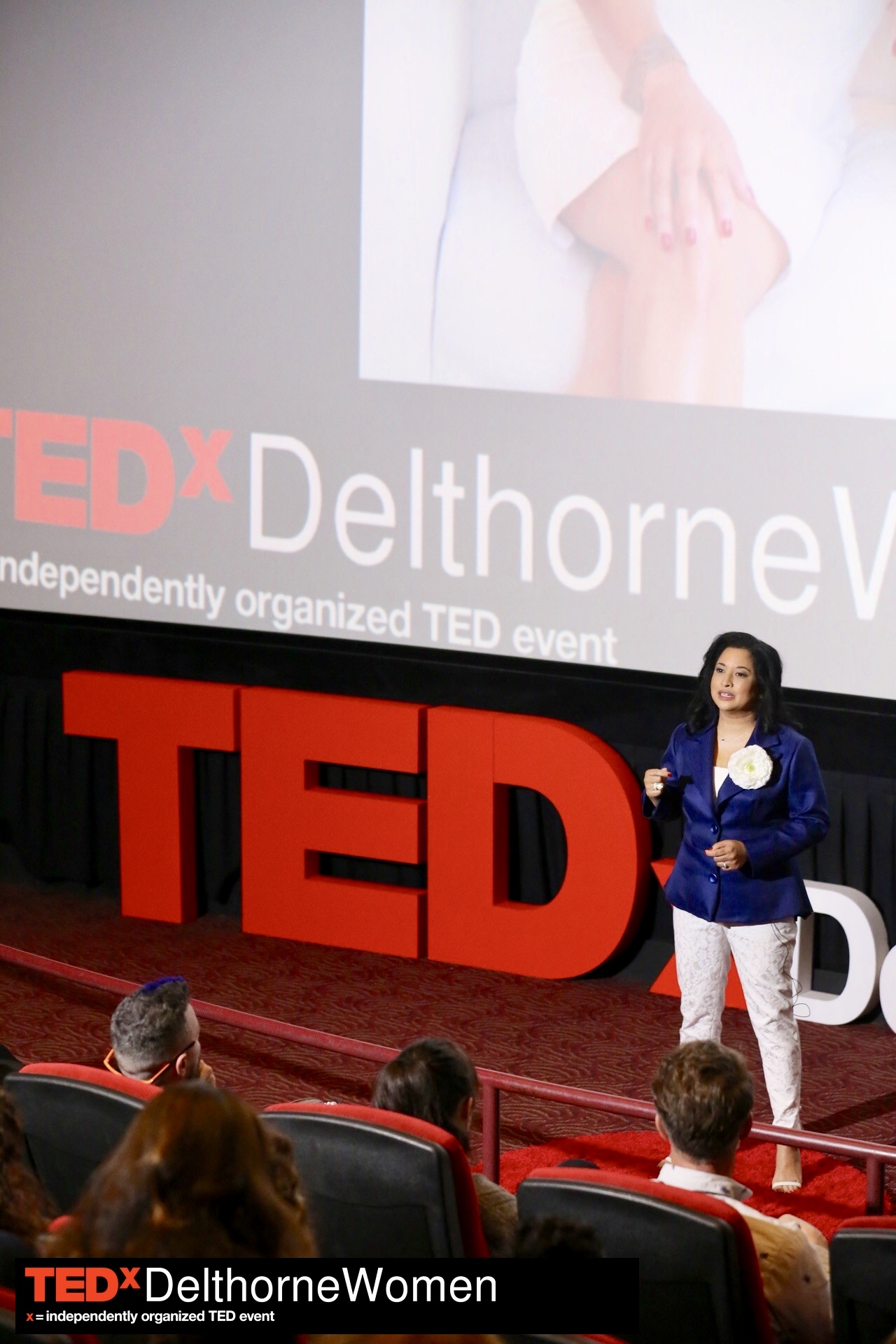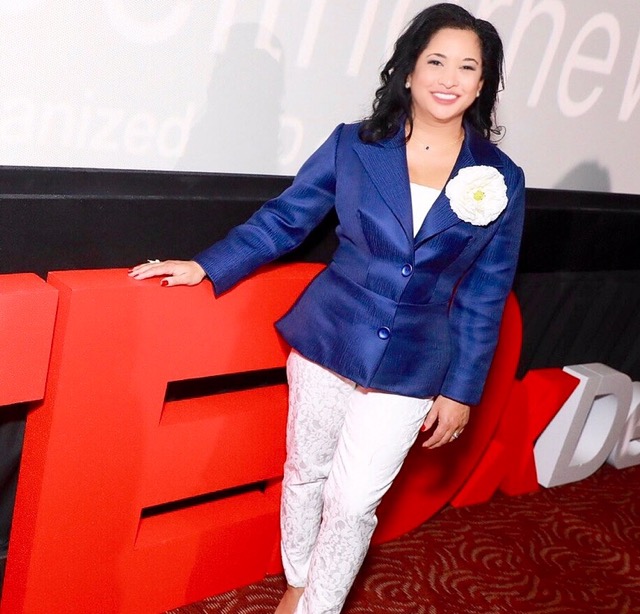The notes for my TEDx talk —The Power is You— filled an entire three ring binder. I’d spent six careful months working to perfect it, only to change both the beginning and ending 72 hours before the event.
“Sheer madness!” shouted my inner critic. “You’re gonna get up there and forget the words!”
My talk had been fact checked, grammar checked, and copy edited to within an inch of its life. It had not, however, passed the most important test: I couldn’t feel it. I knew that if I couldn’t feel it, blood to bones, then my audience wouldn’t either.
Last minute alterations posed a risk. What if I couldn’t think of anything better to say? And even if I thought of something brilliant, what if I couldn’t memorize it in time? To make matters worse, ghosts of speeches past showed up.
Memories of every less than stellar speaking engagement or appearance bubbled up in my psyche.
The business conference where only three or four people showed up in a room set with 100 chairs. The time an irate board member ambushed me because he was in a public fight with my co-presenter. The event in upstate New York where the curator apologized because she had no hint that “the women in this group would be hostile to me as a result of color prejudice.”
At first, I was shocked to realize how many painful memories I’d stashed in a forgotten part of my psyche. Soon, however, it helped me understand why I’d vanished from the stage a decade earlier: I had felt powerless.
Authentic, pure power begins with connection. Let’s pause to distinguish this kind of power from what we’ve been conditioned to believe: it’s not force, violence, money, or Top Dog social status. Rather, it’s a vast reservoir of inner-sourced wisdom and energy—your inner power. When we communicate, we want to feel connected to both ourselves and to the person on the receiving end.
Yet, this connection doesn’t happen because we’ve got perfect content or speak in mellifluous tones. It only happens when we allow ourselves to be vulnerable.
I’m not talking about bare your business on reality tv vulnerable. I’m talking about allowing yourself to be seen, felt, and touched by your listeners. Ideally, there aren’t even any listeners, only co-participants.
It became clear that if I wanted to reach people with my TEDx talk, I’d have to remove some unconscious armor. This would take courage.
So, I turned to the best for help. I listened to Dr. Martin Luther King Jr.’s entire “I Have A Dream” speech. I put “I’ve Been to the Mountaintop” on repeat. I listened to attorney and justice advocate Bryan Stevenson. I pulled out my Maya Angelou, my Eleanor Roosevelt, my Emerson and my Thoreau.
Slowly, my presentation mask—a suit of arms fashioned from a compendium of facts and woven with “proof of this” and “proof of that” peeled away. As the last chinks fell, it took with it my parents’ joint dictum: “Dena, people need evidence, not fluff!” and an older friend’s well-intended but misguided warning to “avoid anything that aligns you with race or blackness” lest it limit my appeal.
By now, my inner critic’s voice was barely perceptible. Instead, I’d begun listening to another, stronger voice, that of my great-grandmother. Born in 1898, she’d only narrowly escaped being lynched by the Ku Klux Klan when she was a young girl. More than anything, she taught me that my power doesn’t come from external source but from an inner soul force.
Suddenly, I had my new talk. It began and ended with my great-grandmother, Marabel—its authority not solely derived from statistics but from my lived experience and that of my ancestors.
In the American South, there’s a saying: “you gotta dance with the one who brung you.” And the ones who brung me—my ancestors—are inextricably linked to my soul force and my power.
In order to deliver a TEDx talk that would inspire people to change their relationship to power, I had to change mine. I had to connect to my self-authority, tune into my unvarnished story, and turn on the courage.
Happily, my talk was extraordinarily well received. And you know what, I didn’t forget a word.
I’d like to leave you with these take-aways:
Tell Your Story! 5 key take-aways
1: It’s easy and comfortable to hide our authentic self from view. But it comes at a steep price.
2: Our inner critic (yes, we ALL have an inner critic) is charged with maintaining the status quo. It will regale you with fearsome tales of failure and rejection to keep you in hiding.
3: Don’t believe the inner critic’s hype!
4: Take the risk of telling your story— the details that make you “YOU.”
Your contribution and story are uniquely powerful. They are meant to in-power others. Get the courage to come out of hiding.
5: There’s wisdom in your lived experience. So, drop the armor and share your wisdom.



